Japan intervened to sell yen for the first time in six years pushing other currencies higher. Dollar, Euro, Sterling, Australian dollar are all higher against the Japanese Yen. Finance Minister Yoshihiko Noda said Japan intervened in the foreign exchange markets as the impact of the yen’s rise on the economy could not be ignored and that Japan would continue to take action, but that it had been acting alone.
At 0939 GMT, the dollar was up 2.5% at 85.17 yen while euro was 2.5% higher at 110.54 yen. The Bank of Japan started buying the dollar from around 10:30 a.m. (0130 GMT) on Wednesday, soon after the dollar hit a new 15-year low of 82.87 yen. It was estimated that the latest move by Japan amounted to 1.5 trillion yen (US$17.67 billion), just a fraction compare to what the country spent in 2003-2004 when it sold about 35 trillion yen (US$409 billion).
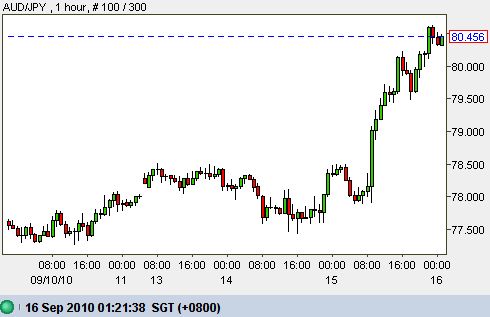
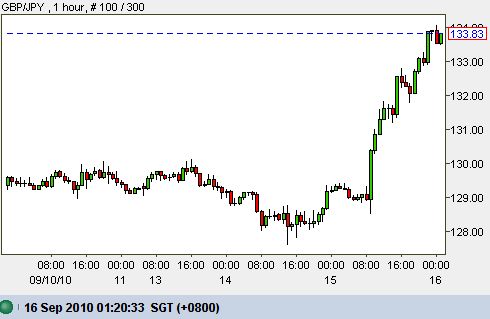
Speculators (George Soros included) who read the report from Goldman Sachs Tuesday which suggested that the U.S. Federal Reserve will extend its quantitative easing as early as November as an indication of weaker dollar would have make good money in currency trading. The dollar plunged at 83.00 yen hence triggering Japan’s intervention.
However it’s not easy to weaken Japanese yen just by selling the currency without “assistance” from other countries. Switzerland had tried without much success in weakening Swiss franc in a 15-month period (ended June 2010) solo quest. Unless other countries would do the same Japan’s latest intervention may just be fruitless. But Japan’s strategy may be different from the one they did 6-years ago.
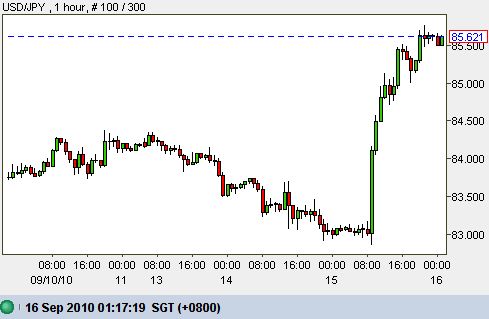
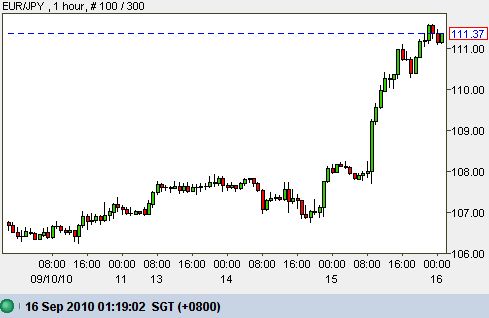
As a starter Bank of Japan will not drain the money flowing into the economy as a result of the yen selling but instead use the sold yen as a monetary tool to boost liquidity and support the economy. Authorities that sell their own currencies to weaken them often issue bills to “sterilise” the funds and keep the excess money from becoming inflationary.
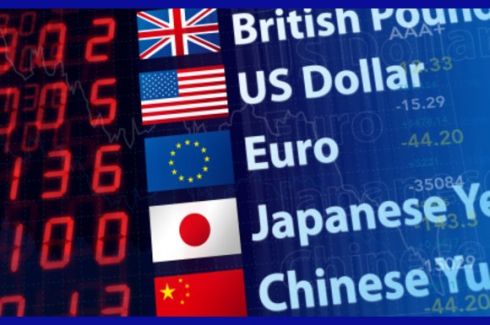
If Japan continues to intervene, Asian currencies such as Korean won, Singapore dollar, Malaysia ringgit, Taiwan dollar and Chinese yuan should see continue weakening as well simply because the central banks of Asian countries will need to weaken their own currencies to boost the competitiveness of their own export sectors.
Tokyo may be targeting 85 yen as Japanese exporters want to sell the dollar above that level before their half-year book-closing at the end of this month. But what’s next? The fact is low U.S. interest rates promote yen’s escalating value because it’s cheap to borrow dollar and sell for high-yielding assets. And what does currency speculator legend George Soros has to say about the latest intervention by Japan?
Other Articles That May Interest You …
- Wake-up, Prepare Your Kids for China
- The Junk US Dollar Skyrockets but whose fault is it?
- Currency Traders prepare to dump Malaysia Ringgit
- Things are getting uglier; I wish ringgit goes back to 3.80
- Forex traders smile their way to the banks

|
|
September 16th, 2010 by financetwitter
|


|

|

|

|

|

|




























[…] Should We Applaud Japan Intervention to Weaken Yen? […]